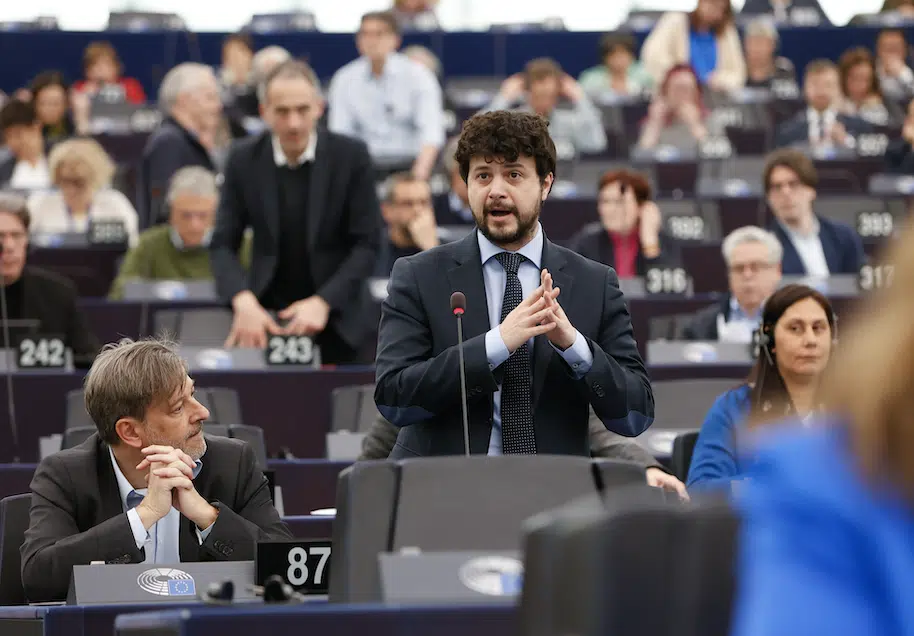Brussels -Don’t listen to ‘your stomach’ and thus don’t think about your wallet, but reason well and focus on reforms that are even more important than money. Mario Draghi seeks to defend his report on competitiveness that European Commission president Ursula von der Leyen requested and mandated. The former prime minister and, before that, the former president of the ECB is aware that if politics focuses on how to finance his plan for a grand revival of the European Union and its eurozone, the path may stop before it even begins: so he calls for calm. The common debt instruments, he acknowledges speaking at the debate that the Bruegel think-tank hosted, “is the issue on which there have been the quickest reactions to the report, but I would say that it is not the main issue in the report.” Therefore, he warns, “I would like not to have the discussion today focused on that.”
Draghi knows that the effort to translate into practice what is in his document – which Eunews and Withub’s translation service have also made available in Italian – has significant costs. About 800 billion euros, according to “calculations by the European Commission and the European Central Bank.” It is no small figure and will inevitably require public intervention. The former premier knows this and does not shy away. However, he suggests that if one focuses less on the financial aspect and more on the agenda, a good part of the program will realize itself automatically as a direct consequence.
“If we agree on the direction if we understand that we are in the middle of this great technological transition” for which “we have to invest a lot” and “if we do the single market reforms,” then everything will be less complicated, Draghi stressed to the Bruegel audience. “When we get there, the capital will come,” he argued. We need to show courage, vision, and credibility. Only then will markets come to meet the needs of the European Union. That is why the Eurobond issue is not ‘the’ issue, and that is why he explicitly called on all national governments not to look at the budget, and that is the real junction for the future, one way or the other, of the Draghi report.
The priority for European competitiveness is completing and strengthening the single market. Draghi reiterates this concept, which, in a nutshell, is that finalizing the single market is necessary to allow innovative companies to scale up and secure financing. At the moment, “there is not enough scale because there are too many barriers and national rules,” Draghi insists. As a result, “alone, no country can meet the challenges of global competition and security.” Draghi calls for more Europe: the exact opposite of what is being called for almost everywhere in Europe, judging by the advance of extreme, Euroskeptic, and sovereignist forces. The Draghi report does not come in the best of contexts, and from Bruegel comes the call for today’s politics to prepare for tomorrow.
English version by the Translation Service of Withub![Mario Draghi in Parlamento europeo [archivio]](https://www.eunews.it/wp-content/uploads/2024/09/dragh5-750x375.png)

![Mario Draghi nell'Aula del Parlamento europeo [Strasburgo, 17 settembre 2024]](https://www.eunews.it/wp-content/uploads/2024/09/draghi-240917-350x250.png.webp)


![La riunione dell'Eurogruppo a Varsavia [11 aprile 2025]](https://www.eunews.it/wp-content/uploads/2025/04/eurogruppo-250411-120x86.png)

